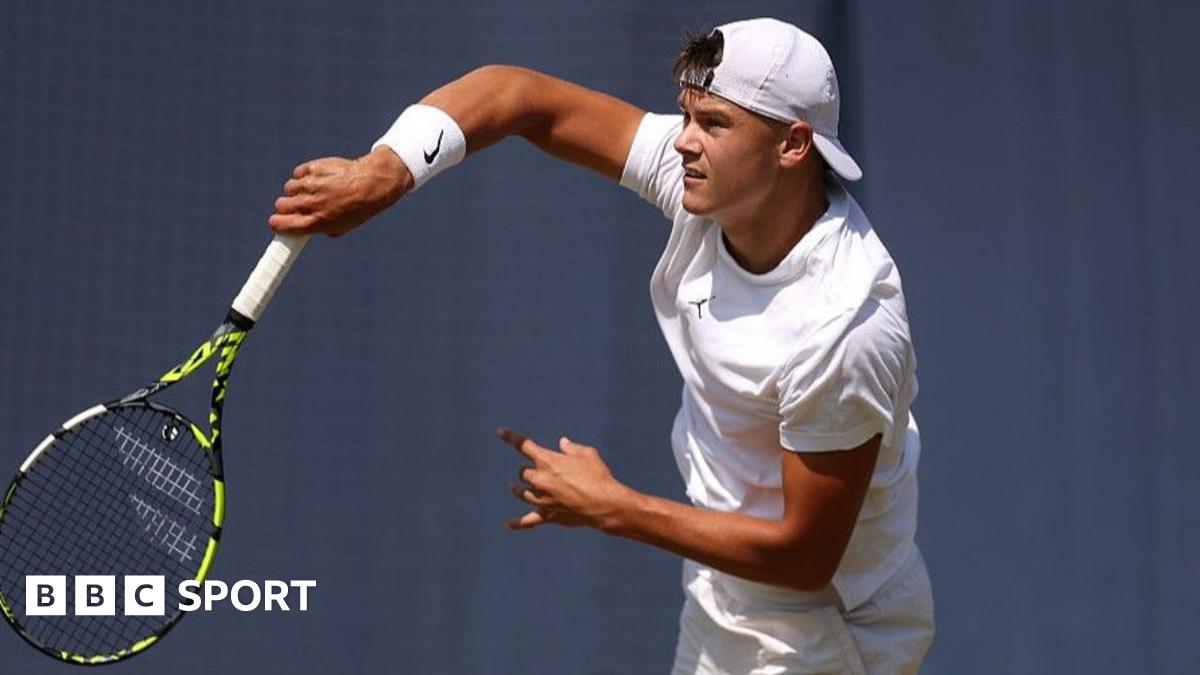What Happened
In a significant upset during the first round of the Queen’s Club tournament, British tennis player Dan Evans defeated American Frances Tiafoe, ranked 13th in the world, with a score of 7-5, 6-2. This match marked Evans’ first victory over a top-20 player since he triumphed against Alex de Minaur in the 2023 Davis Cup. The match took place on June 16, 2025, and showcased Evans’ strong performance on grass, a surface where Tiafoe has historically struggled.
Evans, who entered the tournament as a wildcard and is currently ranked 199th, capitalized on Tiafoe’s difficulties on grass courts. Despite Tiafoe’s higher ranking and recent success, including a quarter-final appearance at the French Open, he was unable to maintain momentum during the match. After a competitive first set, Evans secured a crucial break and continued to dominate in the second set, ultimately closing out the match with a five-game winning streak.
Key Details
- Match Score: Dan Evans defeated Frances Tiafoe 7-5, 6-2.
- Date: June 16, 2025.
- Location: Queen’s Club, London.
- Rankings: Frances Tiafoe was ranked 13th, while Dan Evans was ranked 199th at the time of the match.
- Significance: This victory was Evans’ first against a top-20 player since September 2023 and marked an important step in his efforts to rebuild his ranking after dropping from a career-high of 21st.
During the match, Evans demonstrated effective strategies, including strong net play and resilience in long rallies. Tiafoe, on the other hand, struggled with unforced errors and was unable to capitalize on break opportunities, which ultimately contributed to his defeat.
Multiple Perspectives
The match has drawn various interpretations regarding the implications for both players. Supporters of Evans view this victory as a testament to his determination and skill, particularly given his recent drop in rankings. They argue that this win could serve as a turning point in his career, providing momentum as he seeks to improve his standing in the ATP rankings.
Conversely, Tiafoe’s fans may interpret the loss as a setback in his season, particularly following his strong performance at the French Open. Some analysts suggest that Tiafoe’s struggles on grass could indicate a need for him to adapt his playing style to better suit this surface, which has historically been challenging for him.
Both players have acknowledged the significance of the match. Evans expressed gratitude for the crowd’s support and emphasized the importance of such victories in his ongoing career, while Tiafoe’s performance has raised questions about his preparation and adaptability on grass courts.
Context & Background
The Queen’s Club tournament is a prestigious event on the ATP Tour, often serving as a precursor to Wimbledon. It attracts top players and is known for its grass courts, which require a different skill set compared to hard or clay surfaces. Tiafoe’s history of inconsistent performances on grass has been noted in previous tournaments, suggesting that while he excels on other surfaces, he may need to refine his game for grass.
Dan Evans, on the other hand, has had a mixed career trajectory, experiencing both highs and lows. His current ranking reflects a challenging period, but this victory could signal a resurgence as he aims to reclaim a higher position in the ATP rankings.
What We Don’t Know Yet
While the match results are clear, there are still uncertainties regarding the long-term implications for both players. For Evans, it remains to be seen whether this victory will lead to sustained success in upcoming matches and tournaments. His ability to maintain form and build on this win will be crucial as he progresses through the Queen’s tournament.
For Tiafoe, questions linger about how this defeat will affect his confidence and preparation for future grass-court events, including Wimbledon. His performance in the next few tournaments will be closely monitored to determine if he can adjust his game to improve his results on grass.
Overall, the match between Evans and Tiafoe highlights the unpredictable nature of tennis, where rankings do not always dictate outcomes, and serves as a reminder of the importance of adaptability and resilience in the sport.


